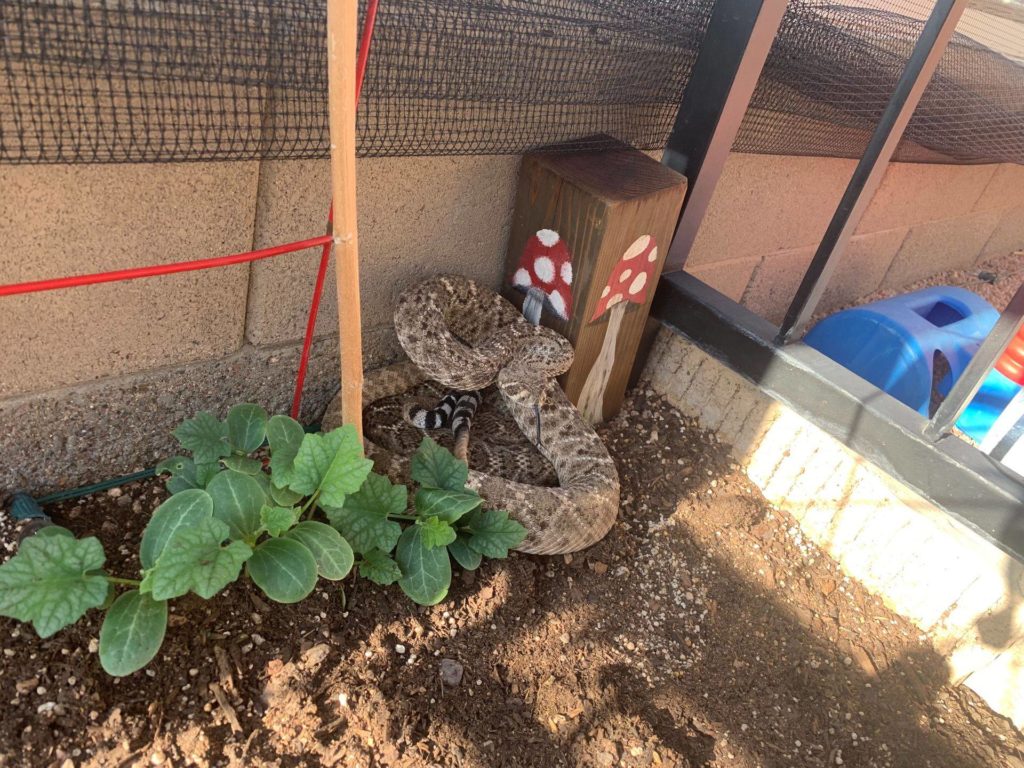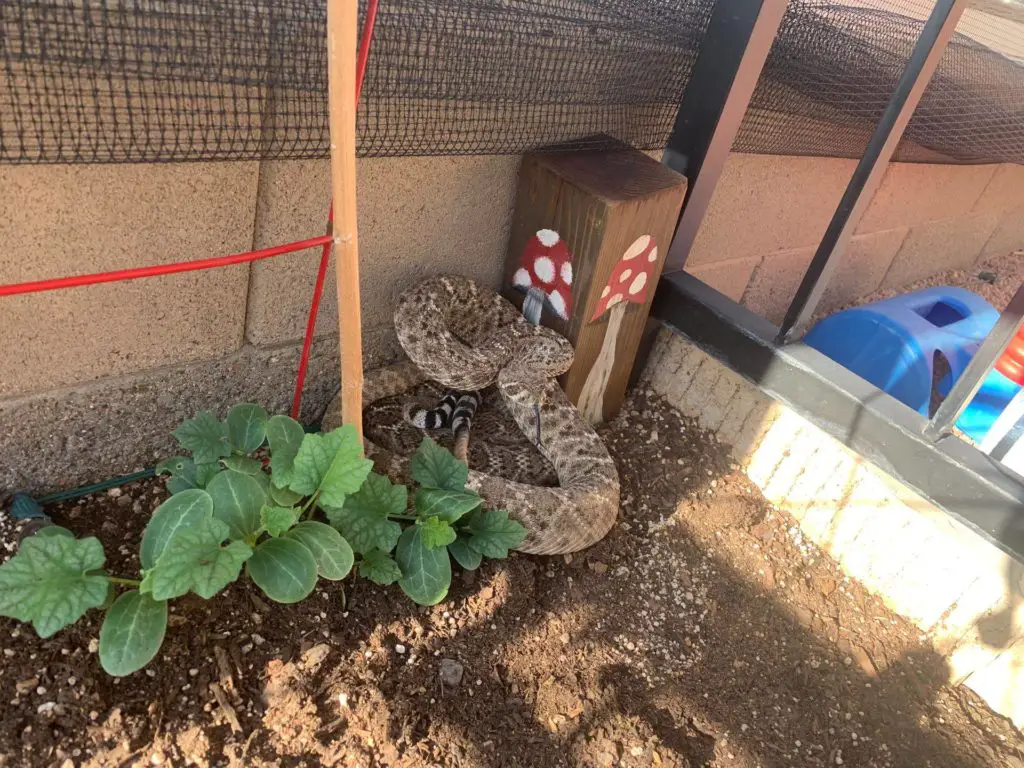Rattlesnakes are venomous snakes that can pose a danger to humans and pets. If you live in an area where rattlesnakes are common, it’s important to take precautions to keep them off your property. In this article, we’ll discuss some effective ways to deter rattlesnakes and keep your home and family safe.
Whether you’re a nature enthusiast or simply want to protect your loved ones, knowing how to keep rattlesnakes off your property is crucial. From identifying potential entry points to creating a snake-proof barrier, we’ll cover everything you need to know to prevent these slithery creatures from entering your property. So, let’s get started and learn some valuable tips on how to keep your home rattlesnake-free.
Living in an area with rattlesnakes can be scary, especially if you have pets or small children. To keep these venomous snakes off your property, follow these steps:
- Remove potential hiding spots: Keep your yard clean and remove any debris, rocks, or woodpiles that could be used as hiding spots for snakes.
- Install a fence: A solid fence can help keep snakes out of your yard. Make sure it extends underground to prevent snakes from burrowing underneath.
- Use snake repellent: Certain plants, like marigolds and lavender, can repel snakes. You can also use commercial snake repellents, but be sure to follow the instructions carefully.
- Be cautious: When walking outside, wear closed-toe shoes and watch where you step. If you encounter a snake, back away slowly and give it plenty of space.

Keeping Rattlesnakes Off Your Property: Tips and Tricks
1. Eliminate possible hideouts
Rattlesnakes love to hide in places where they feel secure and comfortable. Remove any clutter or debris that could provide a hiding spot for snakes. This includes piles of rocks, wood, and leaves. Keep your lawn well-trimmed and remove any overgrown vegetation. Seal any gaps or holes in your walls, floors, or foundation, as snakes may use them to enter your property.
Additionally, remove any food sources that may attract rodents, such as bird feeders or unsecured garbage cans. Snakes are attracted to areas with a high rodent population, and eliminating their food source will discourage them from sticking around.
2. Install a snake-proof fence
If you live in an area with a high rattlesnake population, consider installing a snake-proof fence around your property. These fences are typically made of mesh wire and are buried several inches into the ground to prevent snakes from burrowing underneath. The fence should also be at least 4 feet high and have a slanted top to prevent snakes from climbing over.
Keep in mind that while a snake-proof fence can be effective, it can also be expensive. If you’re on a budget, focus on eliminating possible hideouts and food sources first.
3. Use snake repellents
There are a variety of snake repellents on the market that use natural or chemical ingredients to deter snakes from entering your property. Some common ingredients include cinnamon oil, clove oil, and sulfur. These repellents can be sprayed around the perimeter of your property, or directly onto areas where snakes are likely to hide.
Keep in mind that while repellents can be effective, they may not work for all snakes or in all situations. Additionally, some repellents may be harmful to pets or other wildlife, so be sure to read the label carefully before using.
4. Keep your pets on a leash
If you have pets that spend time outdoors, keep them on a leash or within a fenced area. Unsupervised pets can unknowingly stumble upon a rattlesnake, and may end up getting bitten. Additionally, pets can also attract snakes to your property, as they may be seen as a potential food source.
If you notice any signs of a rattlesnake on your property, such as a shed skin or a rattle sound, keep your pets indoors until the snake has been safely removed.
5. Invest in snake traps
If you have a persistent snake problem, consider investing in snake traps. These traps are designed to lure snakes inside, where they will become trapped and unable to escape. Once the snake has been trapped, it can be safely removed and relocated to another area.
Keep in mind that snake traps can be dangerous if not used properly. Always read the instructions carefully before setting up a trap, and consider hiring a professional to handle the trapping and removal process.
6. Learn about local snake species
Being familiar with the types of snakes that are common in your area can help you better understand how to keep them off your property. Research the habits and behaviors of local snake species, and learn how to identify them. This knowledge can also help you stay safe in the event that you come across a snake.
Keep in mind that not all snakes are dangerous, and many species play an important role in local ecosystems. If possible, try to coexist with snakes and appreciate them from a safe distance.
7. Stay vigilant
Rattlesnakes are most active during the warmer months, so be extra vigilant during this time. When spending time outdoors, wear closed-toe shoes and long pants to protect yourself from snake bites. If you come across a snake, give it plenty of space and avoid disturbing it.
If you notice any signs of a rattlesnake on your property, such as shed skins or snake tracks, act quickly to eliminate possible hideouts and food sources. This can help prevent a snake infestation from occurring.
8. Hire a professional
If you’re dealing with a persistent snake problem or are unsure how to safely remove a snake from your property, consider hiring a professional wildlife removal service. These professionals have the knowledge and equipment needed to safely remove snakes and prevent them from returning.
Keep in mind that wildlife removal services can be expensive, so consider this option as a last resort.
9. Be prepared for a snake bite
Despite your best efforts, it’s still possible to encounter a rattlesnake on your property. If you or someone you know is bitten by a snake, seek medical attention immediately. Keep a first-aid kit on hand that includes snake bite treatment supplies, such as a suction device and antivenom.
Remember that the best way to prevent a snake bite is to stay vigilant and take steps to keep snakes off your property in the first place.
10. Conclusion
Keeping rattlesnakes off your property requires a combination of prevention and vigilance. By eliminating possible hideouts and food sources, installing a snake-proof fence, using repellents and traps, and staying informed about local snake species, you can reduce your risk of encountering a rattlesnake.
If you do come across a snake, remember to stay calm and give it plenty of space. With the right knowledge and preparation, you can coexist with snakes and appreciate these fascinating creatures from a safe distance.
Frequently Asked Questions
Living in an area with rattlesnakes can be dangerous. Here are some frequently asked questions on how to keep rattlesnakes off your property.
What attracts rattlesnakes to my property?
Rattlesnakes are attracted to areas with a lot of rodents such as mice and rats, as these are their primary food source. They are also attracted to areas with a lot of vegetation and places to hide, such as piles of rocks or wood. To keep rattlesnakes away, it is important to remove these attractants from your property.
To do this, make sure to keep your property clean and free of debris. Trim any overgrown vegetation and remove any piles of rocks or wood. Also, make sure to keep any pet food or birdseed stored in airtight containers, as these can attract rodents.
How can I protect my home from rattlesnakes?
The best way to protect your home from rattlesnakes is to make sure they cannot get inside. This means sealing any gaps or cracks in your home’s foundation, walls, and roof. You can also install snake-proof fencing around your property to prevent them from entering.
It is also important to keep your doors and windows closed, especially at night when snakes are more active. Make sure to check your property regularly for any signs of snakes, such as shed skin or holes in the ground.
What should I do if I encounter a rattlesnake?
If you encounter a rattlesnake, the best thing to do is to slowly back away and give it plenty of space. Do not try to approach or handle the snake, as this can be dangerous.
If the snake is in a location where it may pose a threat to people or pets, you may want to call a professional wildlife removal service to safely remove it from your property.
Are there any natural snake repellents I can use?
While there are many natural snake repellents on the market, there is no scientific evidence to support their effectiveness. Some people swear by using mothballs, garlic, or essential oils, but these methods have not been proven to repel snakes.
The best way to keep snakes off your property is to remove any attractants and make sure your home is properly sealed. If you are still concerned about snakes, you may want to consider installing snake-proof fencing as an added layer of protection.
What should I do if I am bitten by a rattlesnake?
If you are bitten by a rattlesnake, it is important to seek medical attention immediately. Call 911 or go to the nearest emergency room as soon as possible.
Try to stay calm and keep the affected limb immobilized until you can receive medical treatment. Do not try to suck out the venom or apply a tourniquet, as these methods can do more harm than good. Prompt medical attention is key to a successful recovery from a rattlesnake bite.
In conclusion, keeping rattlesnakes off your property requires a combination of preventative measures and quick action when necessary. By removing potential hiding spots, keeping your property clean and tidy, and sealing any gaps or holes in your home, you can reduce the likelihood of rattlesnakes taking up residence on your property.
It’s also important to educate yourself and your family on the behaviors and habits of rattlesnakes, so you can better identify them and avoid potential encounters. And if you do come across a rattlesnake, it’s important to stay calm and call a professional to safely remove it.
Remember, prevention is key when it comes to keeping rattlesnakes off your property. By taking the necessary steps to deter them from your home, you can ensure the safety of yourself, your family, and your pets.

